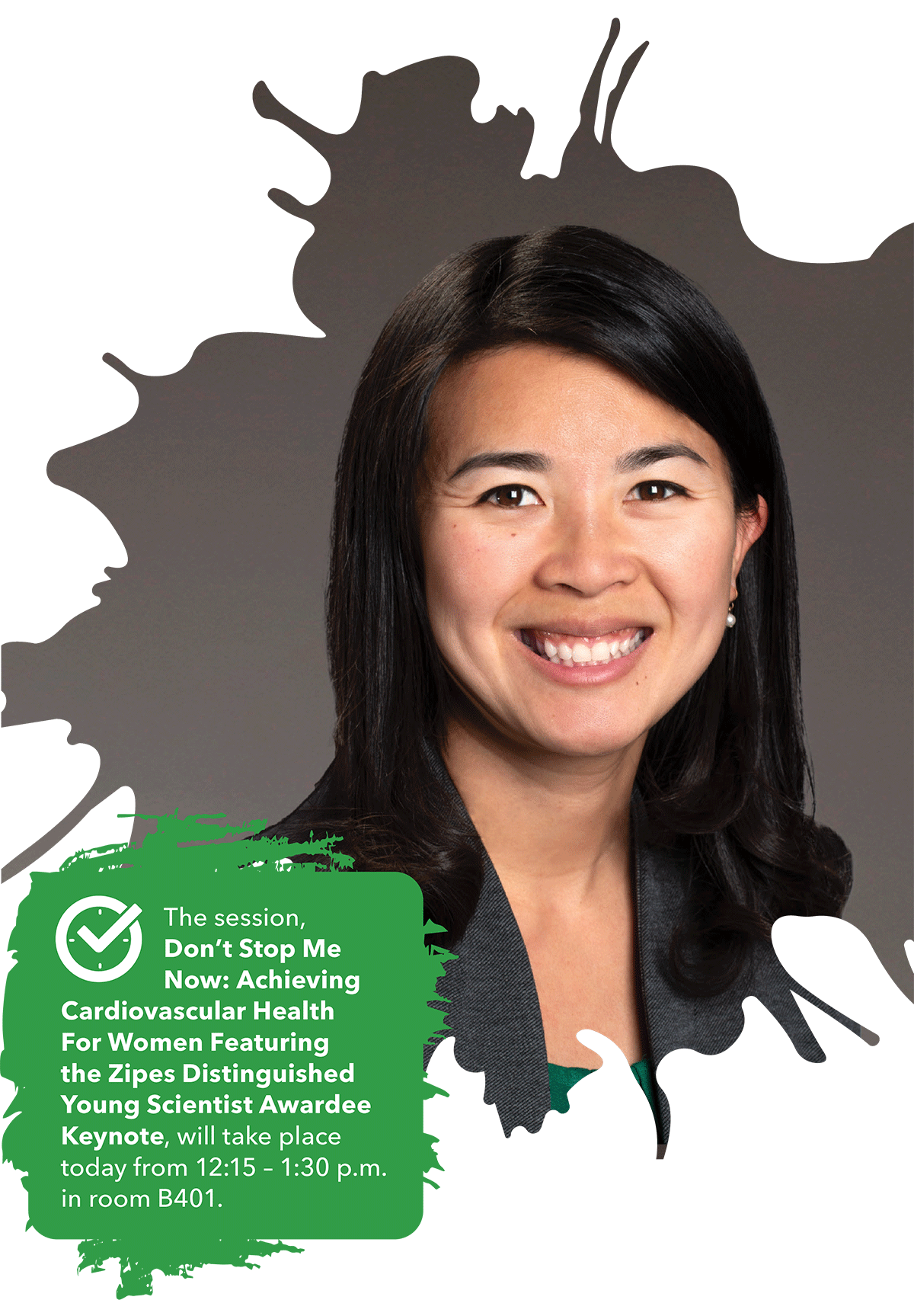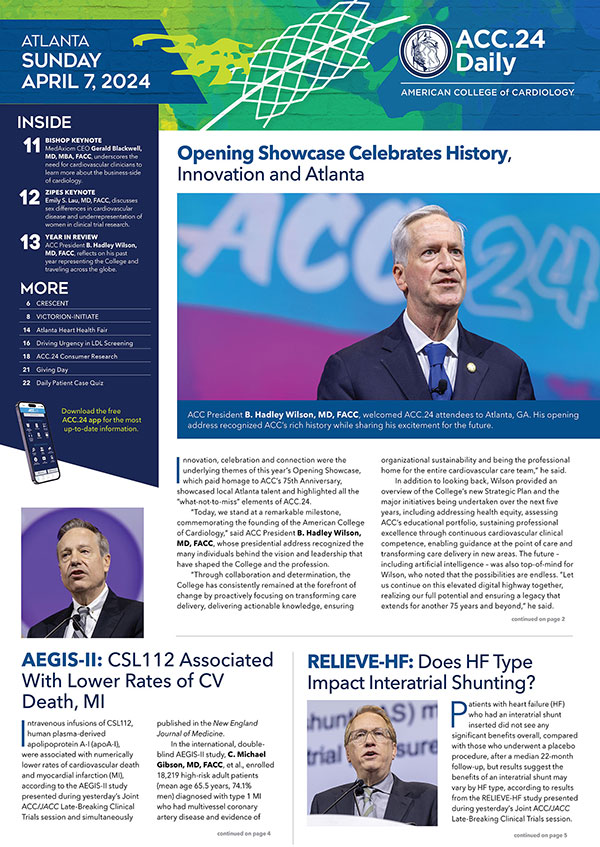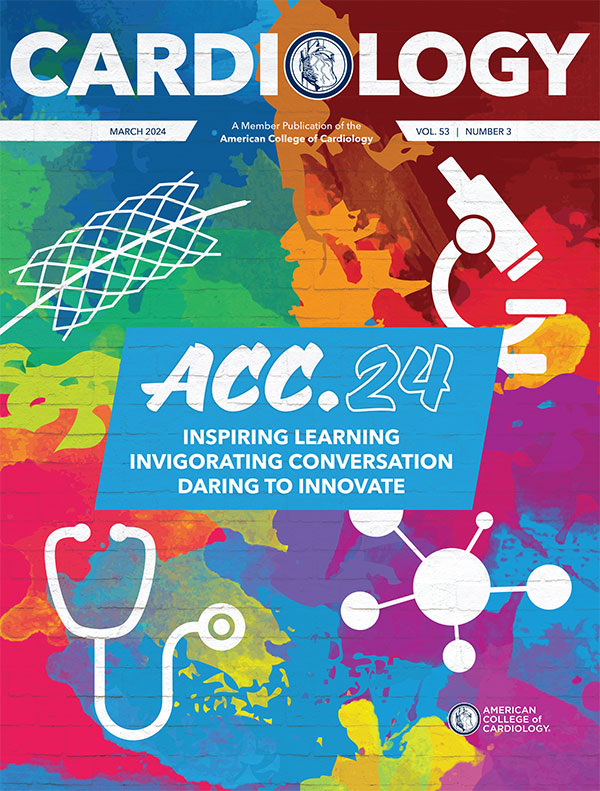Zipes Keynote to Examine Sex Differences in CV Research

Cardiovascular disease presents differently in women and men for a variety of biological reasons, but scientific research has traditionally considered men to be the gold standard, disregarding the potential for sex differences.
With the dawn of precision medicine, researchers are increasingly recognizing the importance of investigating sex differences and including women in medical research. This topic will be explored during the Zipes Distinguished Young Scientist Awardee Keynote and its headline presentation from Emily S. Lau, MD, FACC, on "Overcoming the Male Bias: Why Sex Differences Matter."
"Women are consistently underrepresented across all stages of biomedical research, from cell line and animal studies to large randomized clinical trials," says Lau, an assistant professor of medicine at Harvard Medical School and director of the Cardiometabolic Health and Hormones Clinic in the Corrigan Women's Heart Health Program at Massachusetts General Hospital. "How can we provide the best care for our women patients if we don't understand the foundational principles that are driving disease and health in women?"
The Face of Heart Disease
While cardiovascular disease has historically focused on men, for Lau "the face of heart disease has always been a woman."
"Heart disease runs deep in my family, particularly in the women," she says. "My paternal grandmother died suddenly of a [myocardial infarction] and my maternal grandmother was repeatedly hospitalized for heart failure. My mother struggles with cardiometabolic disease and I personally experienced high blood pressure during my first pregnancy."
These experiences and family history with heart disease fueled her passion to study science and medicine and ultimately motivated her to pursue a career as a women's cardiovascular specialist. "I first began to ask the question, 'What makes men and women different?' after watching my parents experience very distinct medical journeys," Lau says. "My parents were both diagnosed with hypertension around the same time, but what meant popping a pill for Dad became a deluge of side effects, medication titrations and frustration for Mom."
The question "Why and how do men and women experience disease differently?" will be the focus of Lau's address.
"I will delve into the mechanisms, the biologic underpinnings that make heart disease so unique in women compared with men," Lau says. "I've done a lot of work specifically looking at sex differences in heart failure with preserved ejection fraction (HFpEF) and will use that as a case example. HFpEF is a type of heart failure that is much more prevalent among women compared with men and is one of the leading public health challenges that we face today."
The effort to learn more about biological sex differences has grown in recent years. It is now mandated for all studies funded by the National Institutes of Health to include sex as a biological variable, barring a strong justification for why only one sex should be evaluated. Even with this emphasis on inclusion, only 25-30% of participants in cardiovascular clinical trials are women.
"Heart disease is the leading cause of death in women, yet we don't fully understand what is unique about heart disease in women," Lau says. "Even in 2024 we are applying what we have learned from research conducted primarily in men to our women patients without actually knowing if that is the right thing to do."
Looking ahead, Lau notes that the future presents opportunities for clinicians to think creatively and innovate when approaching women's cardiovascular health. During her keynote address, she will also touch on work she has been doing with machine learning and how it can help support women's health issues.
The Zipes Keynote is also an opportunity for Lau, a young investigator, to speak about career pathways for women scientists.
"None of the physician-scientists that I knew looked like me. I didn't think this career path was possible for me, but I was lucky enough to have encountered a few mentors along the way who opened my eyes to the possibilities," she says. "I am hopeful I can open that dialogue for other young female trainees who are thinking about a career that bridges clinical medicine and investigation."
Moving the Field Forward
In addition to the Zipes Keynote, C. Noel Bairey Merz, MD, MACC, will build on the topic of women and heart disease with a presentation looking at "Where Are We Now: From WISE to CHEST PAIN Guidelines."
"[This is] the focused research study of women, not as a subgroup, or as compared to men, that has resulted after only two decades in evidence-based chest pain guidelines that improve the cardiovascular health of women (and some men)," she explains.
Garima Sharma, MBBS, FACC, will also provide insights into "Motherhood and Heart Health: Top 10 Breakthroughs in Cardiovascular Disease During Pregnancy and Postpartum." Specifically, her session will cover new guidance and treatments in cardiogenetics, peripartum cardiomyopathy, cardiovascular risk stratification in pregnancy, management of spontaneous coronary artery dissection, angina with nonobstructive coronary arteries and chest pain in women.
"Sex-specific risk enhancers and their unique pathways in cardiovascular disease remain an understudied part of cardiology," says Sharma. "Taking a tailored approach to management of heart disease in women, which focuses across the life course, is important."
Join ACC's Reproductive Health & Cardio-Obstetrics Member Section
Cardio-obstetrics is a rapidly growing subspecialty in the field of cardiology, relating to clinical care, research, advocacy and interdisciplinary collaboration. The aim of the Section is to transform cardiovascular care and health in women worldwide by providing a grounding point for those who share an interest in cardio-obstetrics. Click here to learn more about the Section.
ACC members at ACC.24 can join a Section for free! Stop by ACC Central or the Lounge & Learn Pavilion to learn how you can take advantage of this offer.
Keywords: ACC Publications, ACC Scientific Session Newspaper

